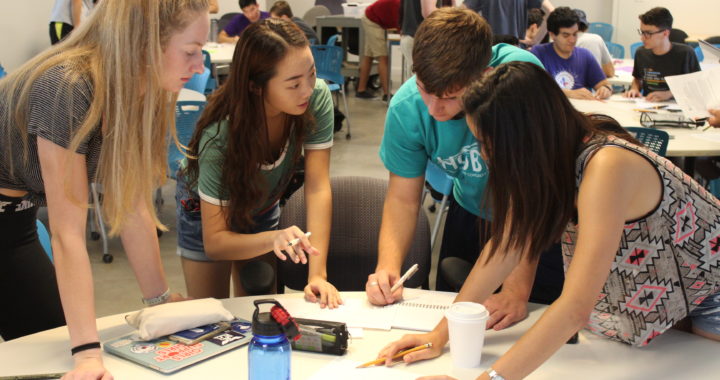Engineering Magazine – Fall 2018
When the Rice Center for Engineering Leadership (RCEL) was formed back in 2010 with a $15 million gift from John ’73, ’74 and Anne ’75 Doerr, the goal was to create the next generation of engineers who exhibited strong analytic and leadership abilities. It would also educate the next class of idea-makers and future CEOs and managers who could emulate the strengths of the center’s founders: entrepreneurship, collaborative vision and a dedication for giving back.
“We want to educate strong, ethical leaders,” said Kazimir “Kaz” Karwowski, RCEL’s executive director. “When Fred Higgs became director of RCEL, we took a closer look at the core competencies we wanted our students to have, and then examined it to be sure what we thought we were doing was actually happening in practice.”
The answer: yes, but.
The RCEL Certificate is a seven-course program worth 11 credit hours, which students take on top of their regular curriculum. Launched in 2014, the Class of 2015 was the first group of students to graduate with the credential. Those students had taken some of the courses before the certificate was presented to and approved by the faculty senate.
Approximately 15 percent of the School of Engineering’s students are enrolled in RCEL, the only academic program at Rice solely dedicated to training and producing tomorrow’s leaders in engineering and technology. But Karwowski also recognizes this number could be higher. Higgs decided it was time for RCEL 2.0, and one of the things that came out of that was a new mission statement: “To inspire, educate and develop ethical leaders in technology who will excel in research, industry, non-engineering career paths or entrepreneurship.”
Known as RIPE, the new focus on a broader spectrum of professional development is expected to encourage more engineering students to use RCEL as a career launch pad.
“Our goal is to inspire more Rice engineering students to plan out and envision how they will one day lead universities, large teams in companies, medical centers and start-up companies in a strategic and ethical way,” said Higgs, who is the Vice Provost for Academic Affairs and also the John & Ann Doerr Professor of Mechanical Engineering.
“Right now, we have about 200 students of the 1,400 enrolled engineers taking RCEL classes,” said Karwowski. “We’re looking to improve on that, and we think that by showing these different facets of engineering leadership and how they can apply in students’ educational and professional lives, more of them will want to be part of RCEL.”
Another outcome from the focus on RIPE is that the classes toward the certificate now have an official RCEL designation in the Rice course catalogue. In addition to courses like RCEL 100 (Self-Awareness and the Engineering Leader), RCEL 400 (Leading High Performing Engineering Teams) and RCEL 450 (Project Management and Leadership Action Learning), there are course designations for each of the RIPE specifications.
“We’re expanding our footprint to ensure that RCEL students are getting a deeper benefit of what we offer,” said Karwowski. “We’re going to continue doing what we’ve always done—providing a certificate program that distinguishes our graduates from their peers. But we’ve tweaked it to be certain we are responding to students’ interests and career paths. This is a great move for us and for our engineers.”

